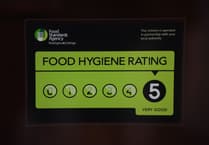James Evans MS has written to the Welsh Government calling for urgent action to address the impact of the 182-day occupancy rule on Wales’ self-catering holiday lets, warning that the policy is pushing tourism businesses to the brink.
In a detailed letter to Cabinet Secretary Rebecca Evans, Brecon and Radnorshire MS Mr Evans highlights how the requirement for holiday let properties to be available for at least 252 days and actually let for 182 days per year to qualify for business rates relief is causing genuine rural tourism businesses to be reclassified as second homes. This reclassification means many face council tax bills - often doubled by premium charges - ranging from £3,000 up to £30,000.
“This is forcing many businesses to cease trading, having a knock-on effect to other businesses in the area that rely on tourist spend,” he said.
Mr Evans writes: “This policy is already having a devastating effect on the viability of self-catering businesses.
“According to the Professional Association of Self Caterers (PASC), many owners are being forced to sell up, and a recent survey found that 94 per cent of respondents were stressed by the rule, with 60 per cent expecting to fall short of the threshold this year.”
Mr Evans then urged the Welsh Government to reconsider the threshold and engage with industry stakeholders, suggesting a more flexible approach such as lowering the occupancy requirement to 105 days.
In response to a query from the B&R, the Welsh Government said the letter has been passed to the Cabinet Secretary for Finance and Welsh Language, who is responsible for this area, who will respond in “due course”.
A Welsh Government spokesperson said: “We recognise the importance of tourism to the Welsh economy and have invested more than £70 million in the industry this year, but we also recognise the needs of our communities as everybody has a right to live and work locally.
“We continue to monitor the effect of the changes, but we have no plans to undertake a formal review of this policy.”
New visitor levy sparks further debate
The letter comes amid growing concerns over a new tourism tax, which passed its third stage in the Senedd earlier this week. The levy would allow local councils to charge up to £1.30 per person, per night in visitor accommodation, with an estimated potential to raise £33 million annually if widely adopted.
Mr Evans has called on Powys County Council to choose not to introduce the charge, which Pembrokeshire, Wrexham, Caerphilly and Rhondda Cynn Taff councils have already done.
But Powys County Council has told the B&R it is yet to decide whether it will implement the levy.
A spokesperson for council said: “The council has not formally considered its position with regard to the visitor levy but will consult with residents and businesses before deciding whether to introduce it.”
Mid Wales Tourism calls for delay and better data
Leaders at MWT Cymru (Mid Wales Tourism), which represents more than 600 tourism and hospitality businesses across Powys, Ceredigion and Meirionnydd, are very concerned.
They have called for the tourism tax to be delayed until there is a register of all tourism businesses in Wales. There is anger in the sector that whilst registered businesses pay business tax, commercial recycling and other charges, unregistered rivals unfairly operate under the radar and avoid all the bills.
Zoe Hawkins, MWT Cymru chief executive, is disappointed that the Senedd rejected an amendment to compile this register before a tourism tax decision is made.
“Members of the Senedd are being asked to make a decision without crucial data or a full understanding of the potential impacts,” she said. “Robust, evidence-led policymaking is vital, especially when rural communities and the wider visitor economy are already under immense strain.
“Policies like this could potentially have long-lasting and damaging consequences, as we saw with the 182-day rule, which was intended to target second homes. Instead, we are already seeing the evidence that it is harming genuine tourism businesses and farming families across Mid Wales, which the sector had previously warned was a likely outcome.
“Decisions must be properly reviewed and scrutinised as part of a joined-up approach, not taken in isolation. Our politicians need to be 100 percent sure that due diligence has been done when being asked to decide a policy which could have severe, unintended consequences, particularly in rural areas.
“If the visitor levy is truly in the best interests of Wales, as it should be, taking the time to get it right isn’t just sensible, it’s vital."
Suzy Davies, MWT Cymru’s vice chairman, also warned about the wider impact of the levy.
“This has long ceased to be a ‘tourism tax’, charging visitors for the privilege of a holiday in Wales - it’s a fee for staying in visitor accommodation for any reason,” she said.
“People going to a funeral, going into hospital, visiting loved ones in hospital or care homes, giving evidence in court, even escaping domestic violence - they will have to pay.
“Visitor accommodation providers will have to be registered as a result of this legislation. This should help reassure visitors that properties are safe and legal, as well as providing a database of businesses which will be responsible for collecting the tax.
“Unfortunately, the Finance Secretary refused to compel councils to chase operators avoiding registration and collecting the tax so, once again, we see another burden which falls on the shoulders of the businesses playing the game not gaming the system.
“I’m pleased to see that some local authorities have already indicated that they will not or have no plans to introduce the tax. This must give neighbouring counties pause for thought, especially in Mid Wales.
“This policy is built on the premise that all councils will participate and raise an unsubstantiated amount of money from an unknown number of visitor accommodation providers.
“With some already refusing to introduce a levy, no register of accredited businesses and an eye-watering predicted cost of the local and central administration of the legislation, there will be precious little money left to make any meaningful impact on improving the experience of residents or visitors.”





Comments
This article has no comments yet. Be the first to leave a comment.